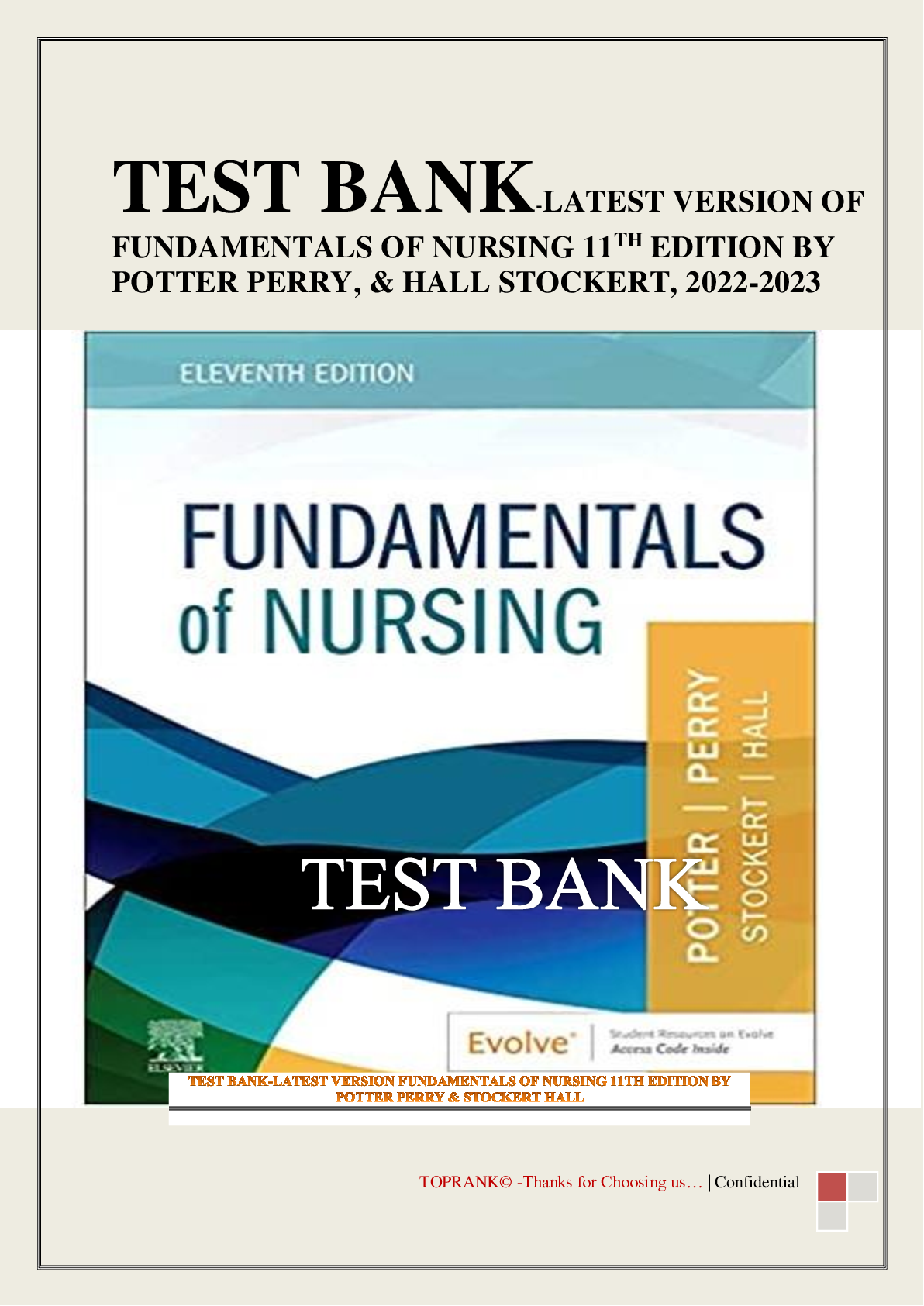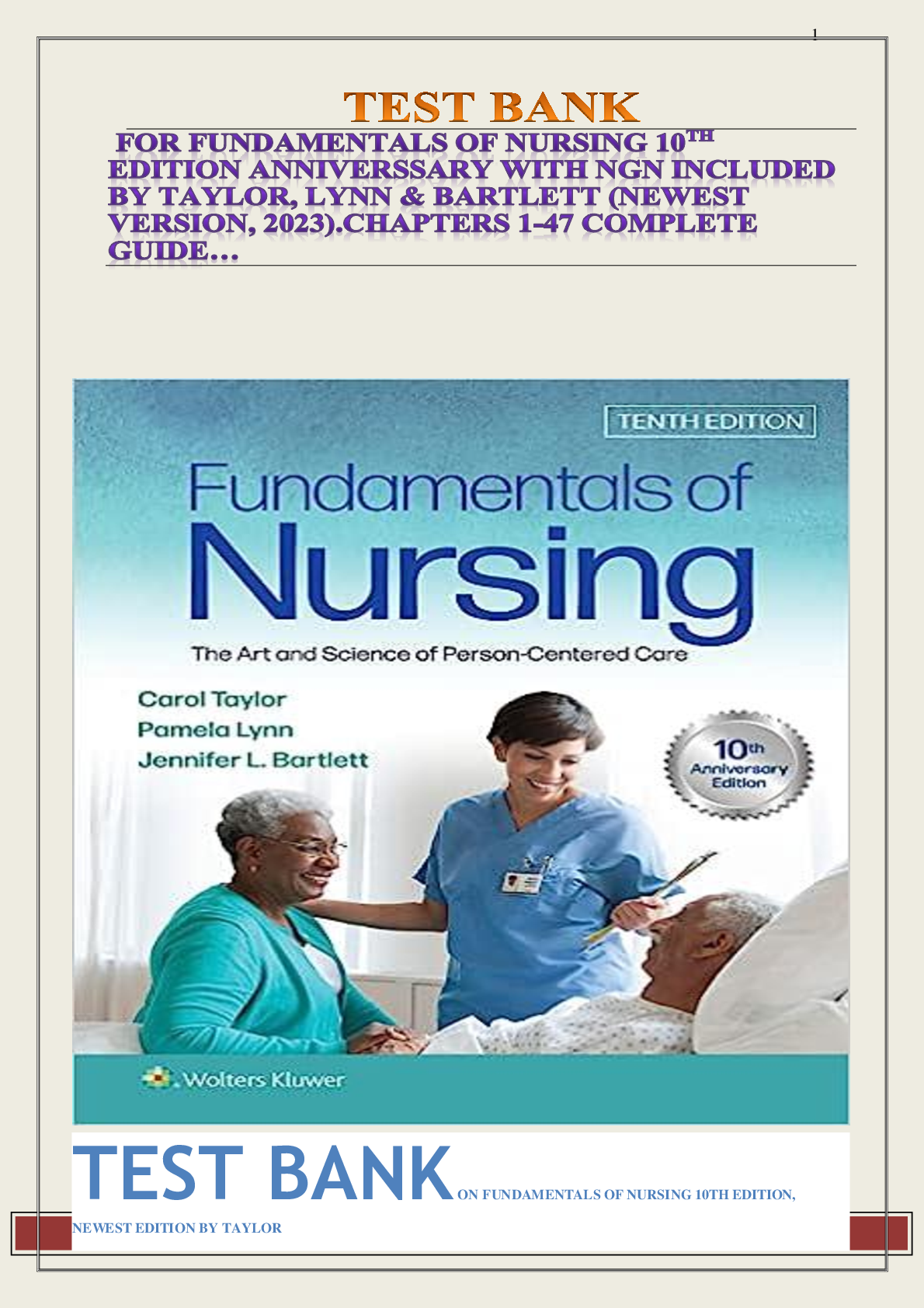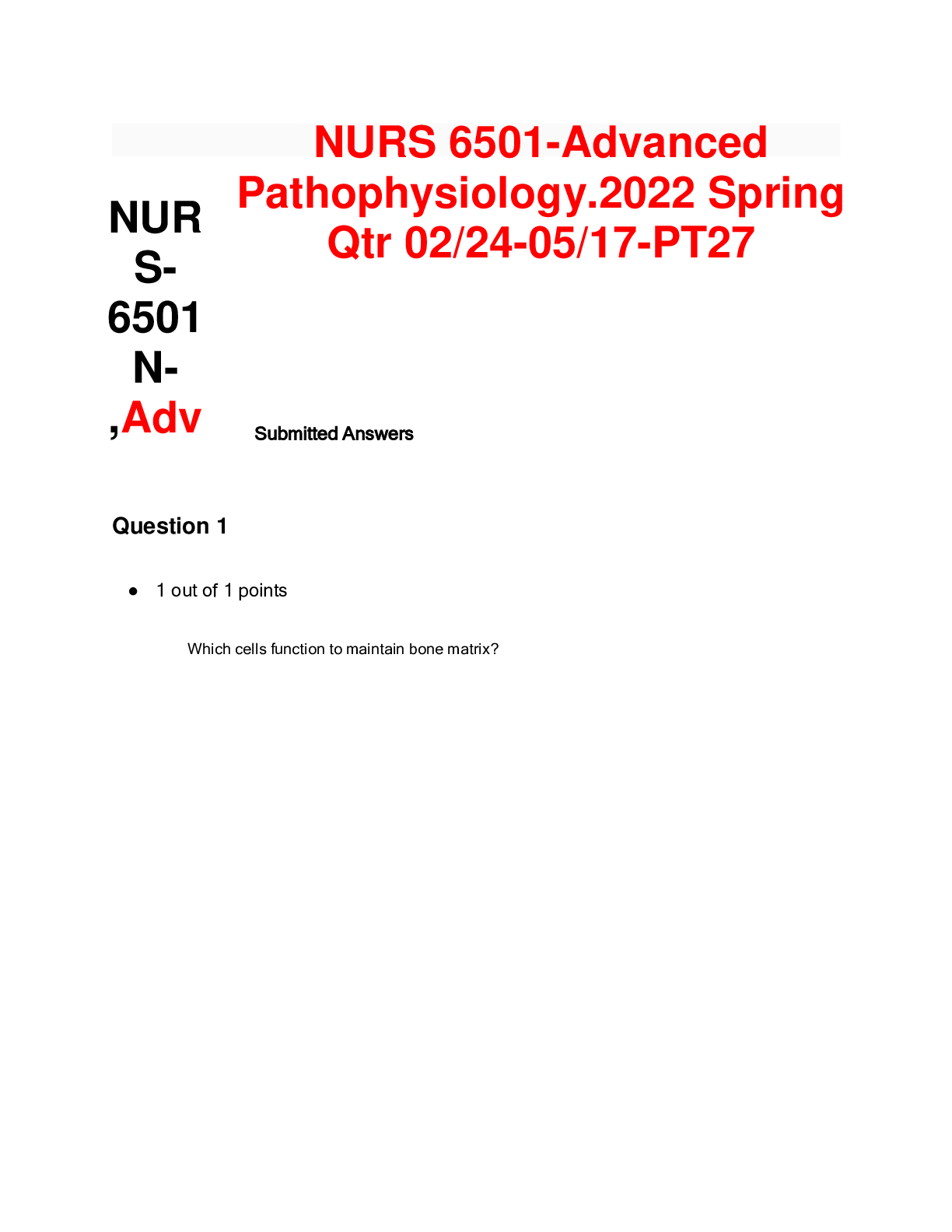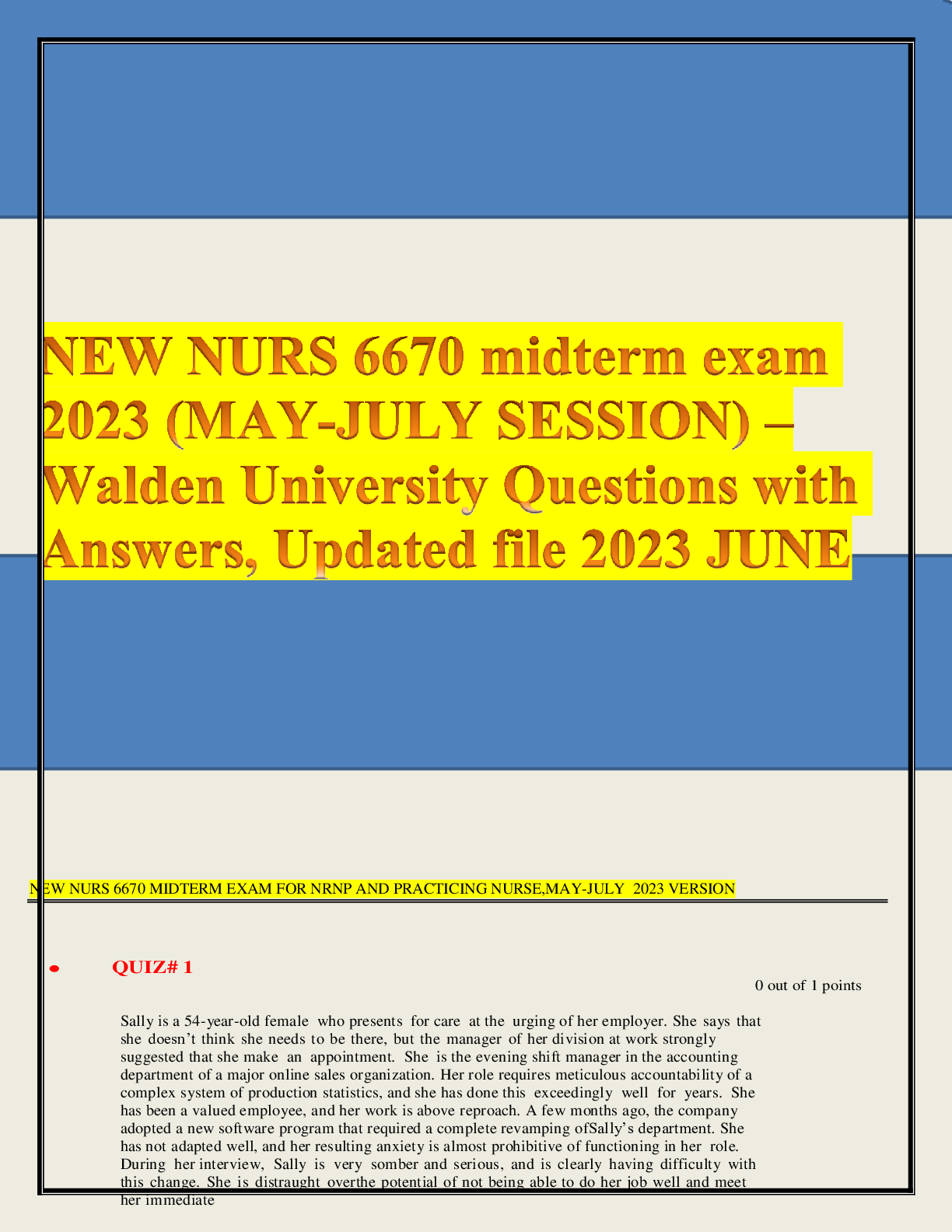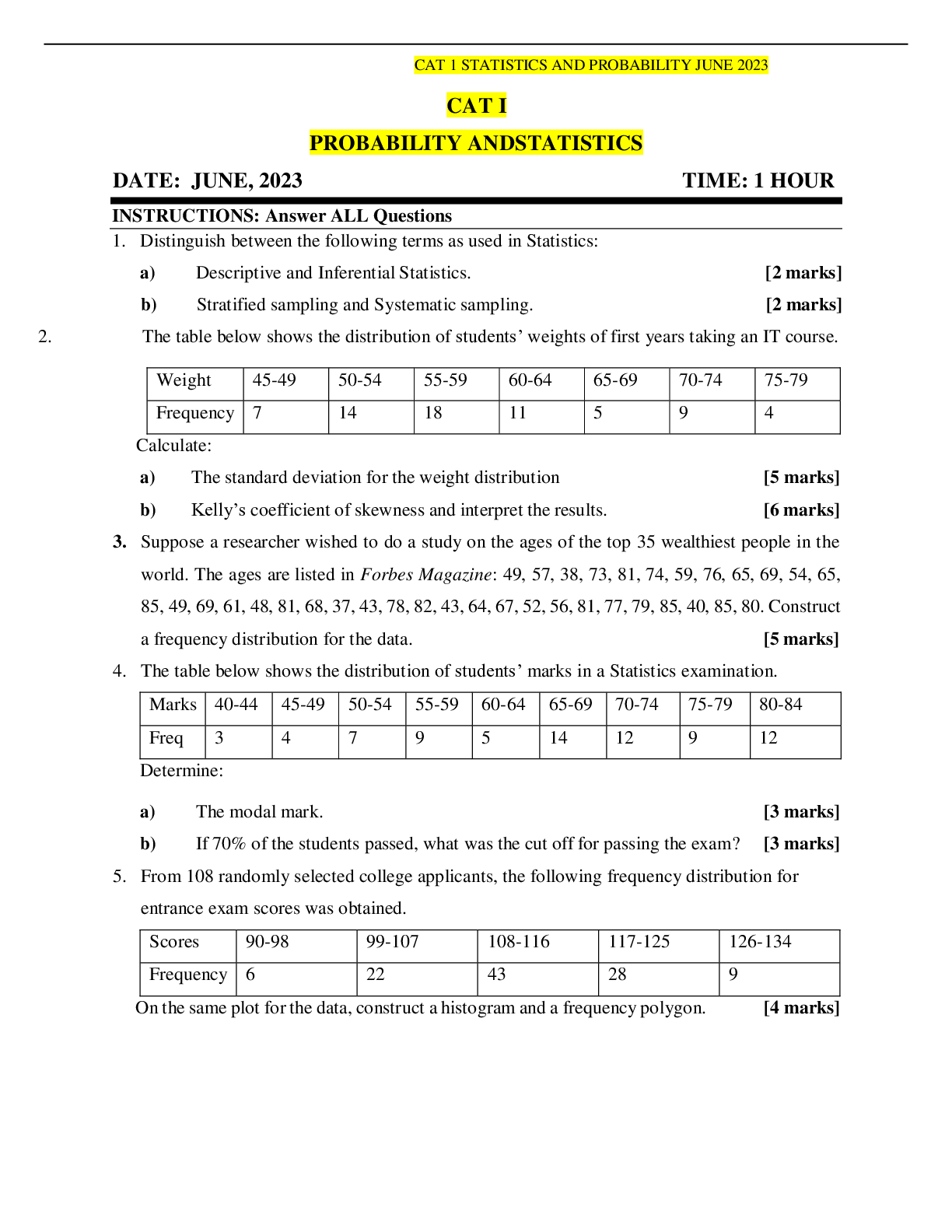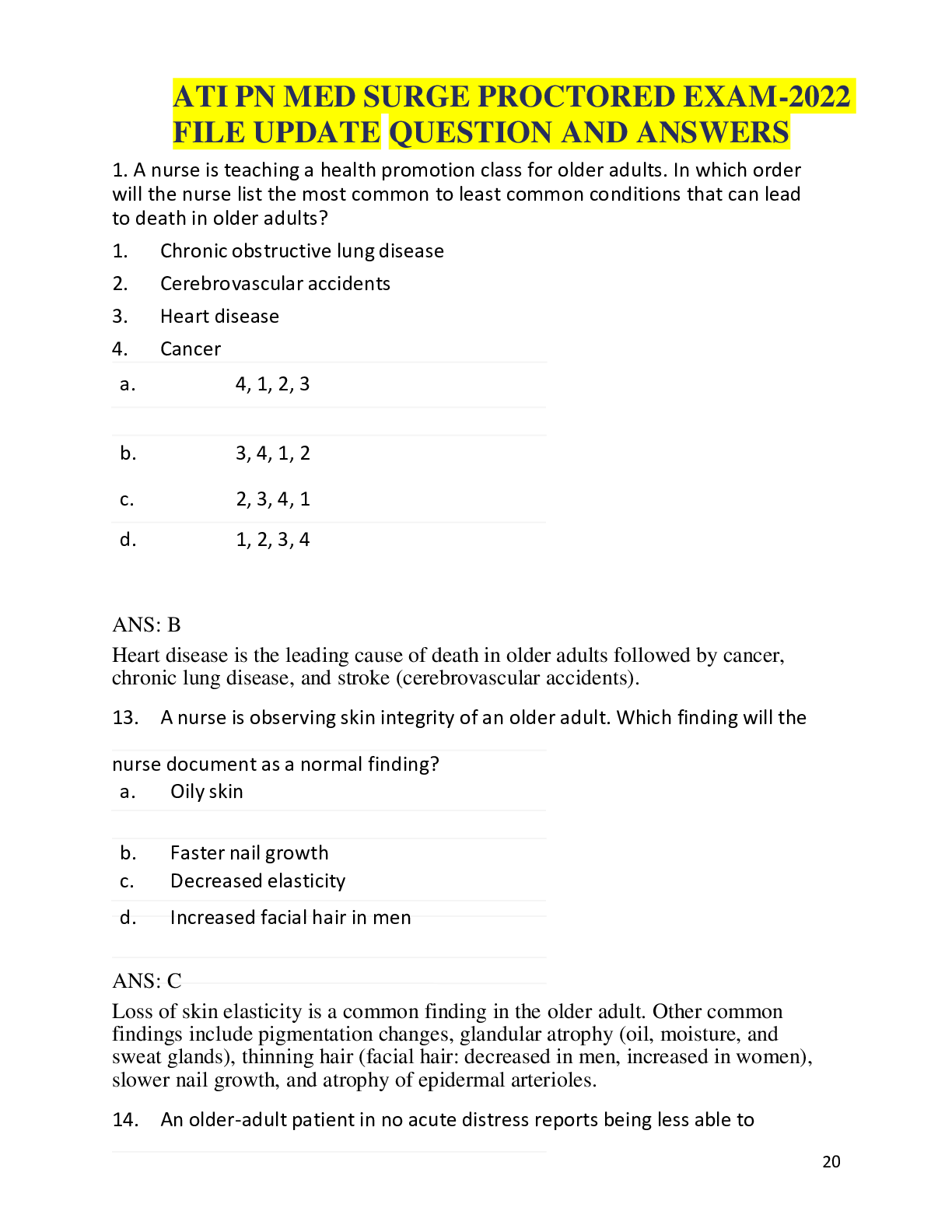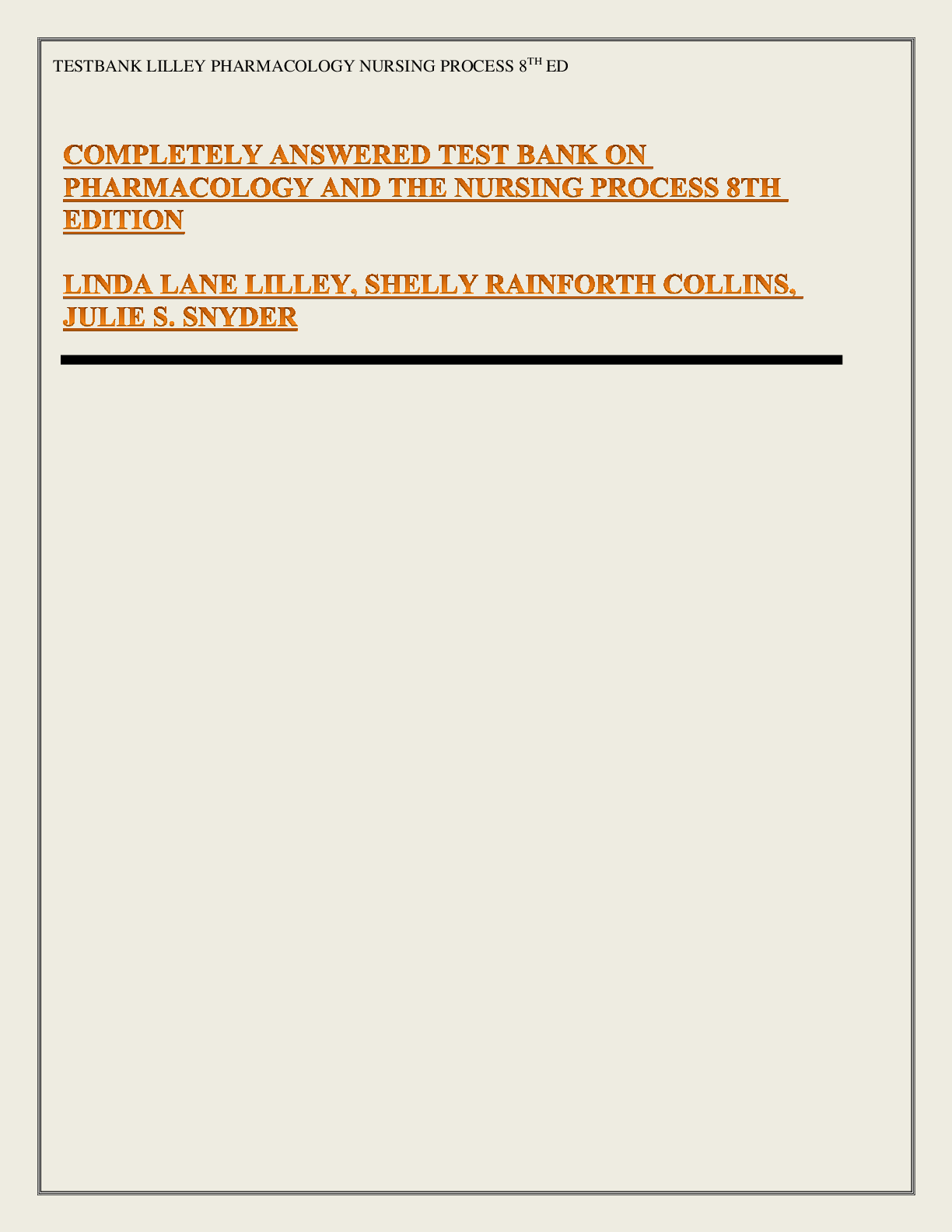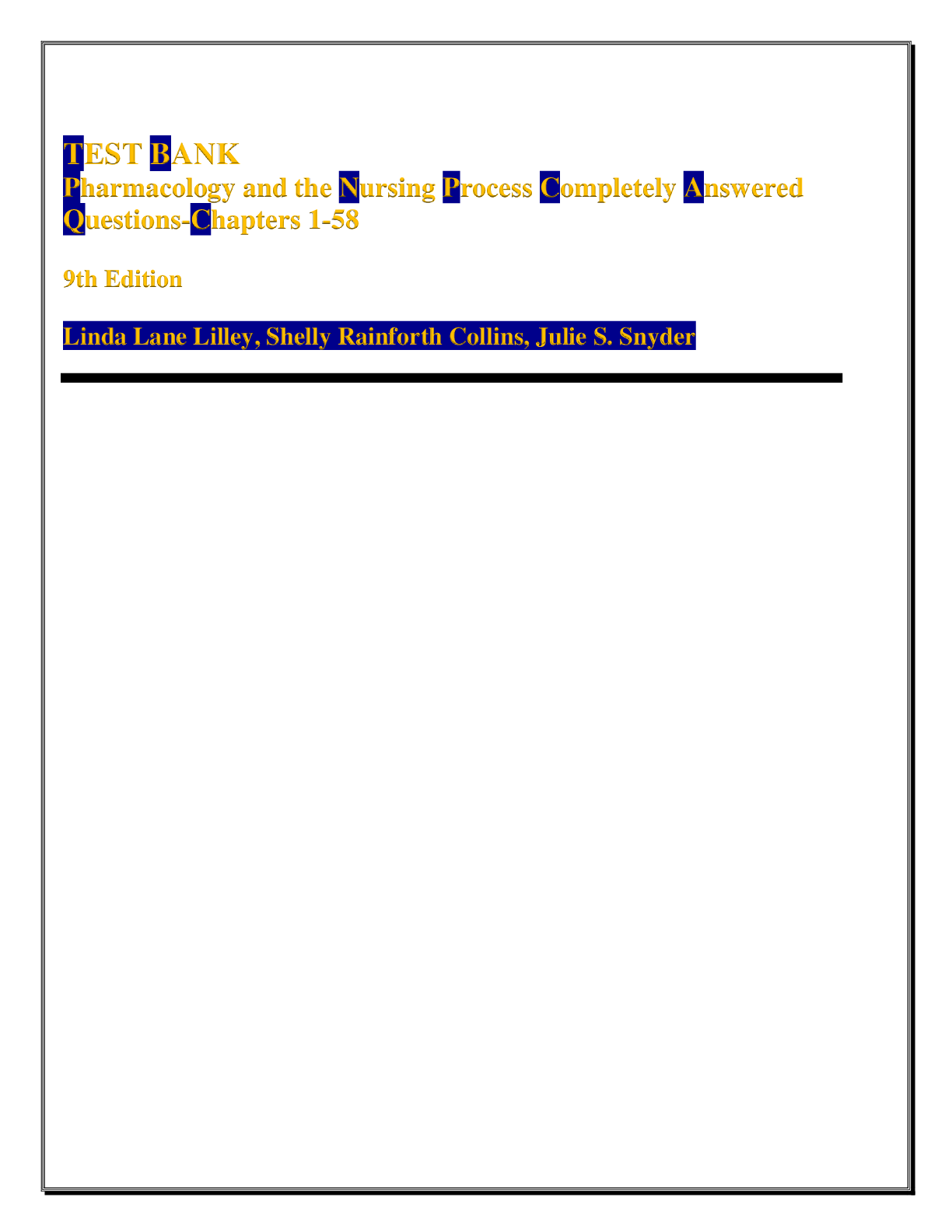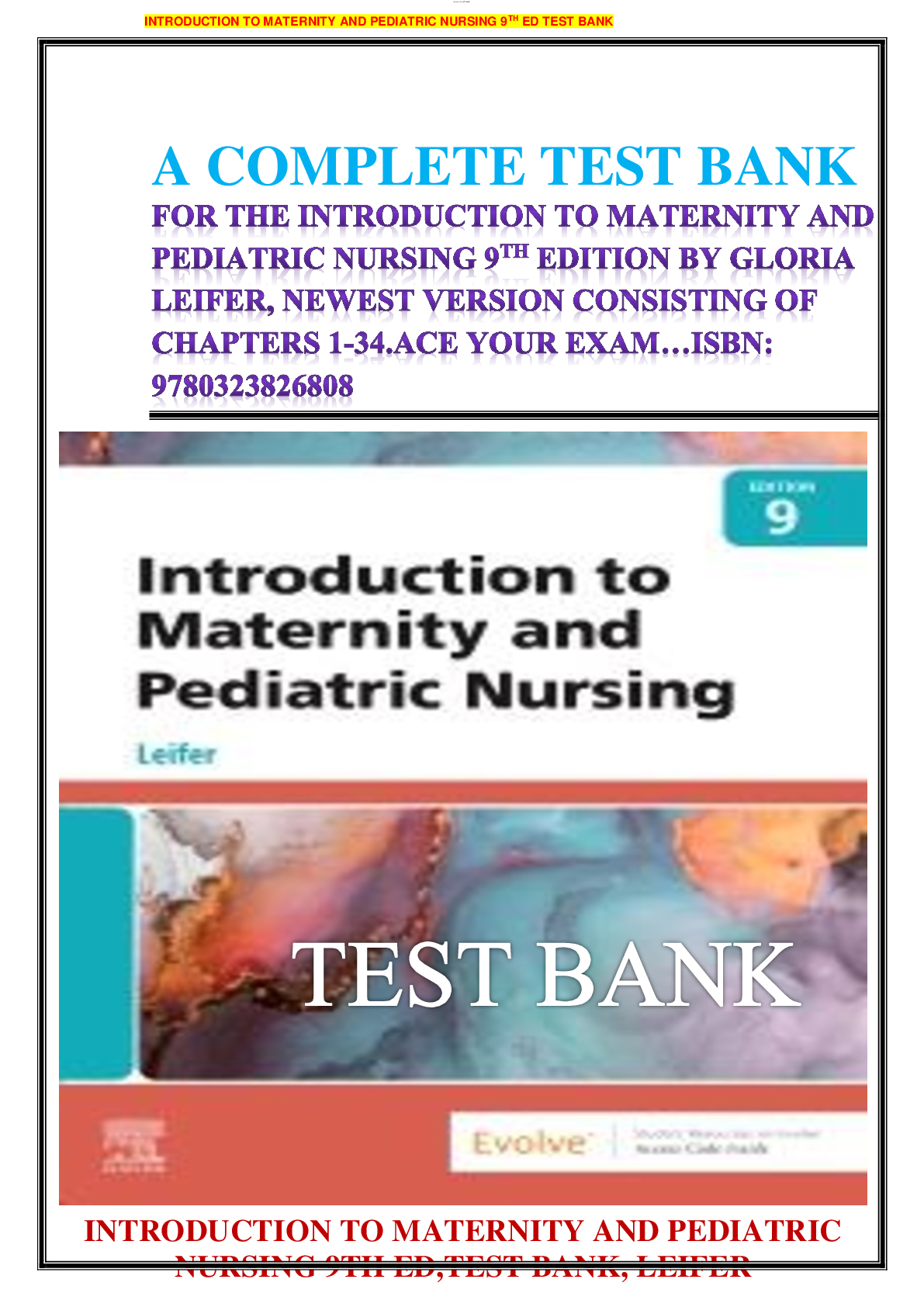Review Test Submission: Week 9-Quiz Questions and Answers Latest File
Document Content and Description Below
A 67-year-old man who is being treated for prostate cancer is taking epoetin alfa. The nurse will instruct the patient to Response Feedback : After each dose adjustment, the nurse should ensu... re that the patient makes an appointment to have the hemoglobin measured twice a week for at least 2 to 6 weeks to verify that it is in the normal range. A high WBC count and hypertension have not been identified as adverse effects of epoetin alfa. A 60-year-old patient experienced a sudden onset of chest pain and shortness of breath and was subsequently diagnosed with a pulmonary embolism in the emergency department. The patient has been started on an intravenous heparin infusion. How does this drug achieve therapeutic effect? Response Feedback : Heparin, along with antithrombin, rapidly promotes the inactivation of factor X, which, in turn, prevents the conversion of prothrombin to thrombin. Heparin does not achieve its therapeutic effect through the excretion or inhibition of vitamin K or by inhibiting platelet aggregation. A male patient is receiving rituximab therapy for non-Hodgkin's lymphoma. Which of the following would be a priority nursing intervention to reduce the risk for cytotoxicity and tumor lysis syndrome? Response Feedback : Ensuring that the patient maintains a normal fluid and electrolyte balance is critical to maintaining a consistent drug dilution in the body and therefore limiting the risk of cytotoxicity and tumor lysis syndrome. Ensuring that the patient maintains a normal breathing pattern, is protected from exposure to infections, and does not develop renal impairment are also important nursing responsibilities; however, they do not help to significantly reduce the risk for cytotoxicity and tumor lysis syndrome. A male patient has been on long-term bicalutamide (Casodex) therapy. In order to assess adverse effects of the drug therapy, the nurse will closely monitor which of the following? Response Feedback : It is important for the nurse to monitor the patient's liver function closely if the patient is on prolonged therapy with an antiandrogenic agent. Adverse effects of the therapy include gynecomastia, diarrhea, hot flashes, breast pain, impotence, loss of libido, and abnormal liver functions. Monitoring of blood counts, an annual pap smear, and regular visual function tests are advised for patients undergoing tamoxifen therapy. A patient will soon begin targeted therapy as a component of her treatment plan for chronic leukemia. The nurse is conducting health education about this new aspect of the patient's drug regimen and the patient has asked about the potential side effects of treatment. How should the nurse best respond? Response Feedback: Targeted therapies are generally considered to be less toxic than traditional chemotherapy drugs. However, adverse reactions to targeted therapies can occur such as severe skin reactions, GI toxicities, skin reactions, and thrombosis [Show More]
Last updated: 2 years ago
Preview 1 out of 10 pages
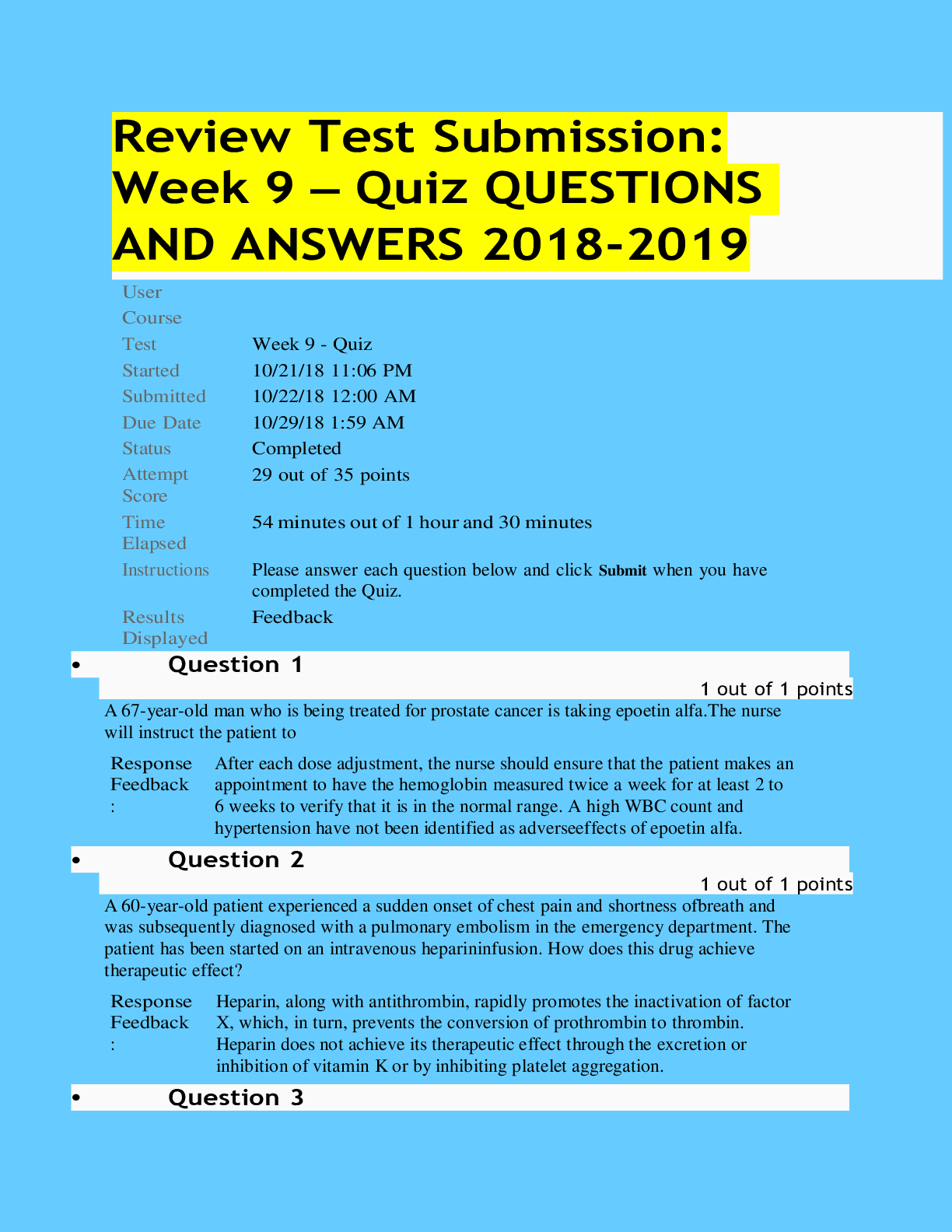
Buy this document to get the full access instantly
Instant Download Access after purchase
Buy NowInstant download
We Accept:

Reviews( 0 )
$8.00
Can't find what you want? Try our AI powered Search
Document information
Connected school, study & course
About the document
Uploaded On
Jun 11, 2023
Number of pages
10
Written in
Additional information
This document has been written for:
Uploaded
Jun 11, 2023
Downloads
0
Views
55


